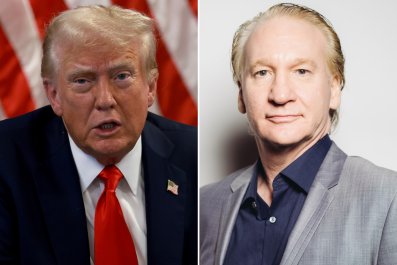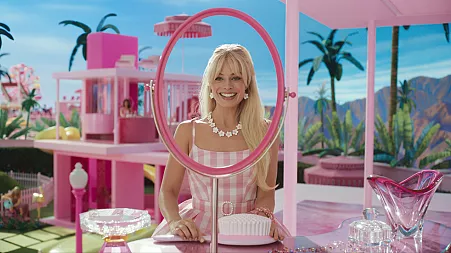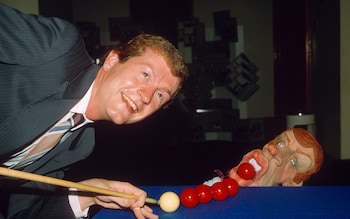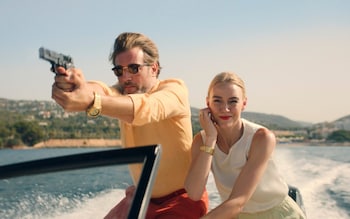If Wes Anderson or the Coen Brothers were to make a superhero movie, it might look a lot like the supremely quirky The Umbrella Academy – which has returned to Netflix for a winningly weird final season.
Along with The Boys on Amazon Prime Video, the series – adapted from the popular Gerard Way and Gabriel Bá comic – is a prominent example of what might be called the revisionist superhero genre. Just as the early Seventies saw a generation of film-makers subvert the Westerns of the previous decade, so these two shows stand as alternatives to the quippy but ultimately po-faced Marvel Cinematic Universe.
Where The Boys is viciously satirical and gleefully gory, The Umbrella Academy, which features Elliot Page, Robert Sheehan and Tom Hopper as members of a family of reluctant superheroes created by a mad professor (Colm Feore), strives for an elevated eccentricity. It’s an acquired taste, and a tolerance for wackiness is obligatory. That becomes apparent early on in this six-part sign-off when his ‘n’ her villains, Jean (Megan Mullally) and Gene (Nick Offerman), perform a ritualised dance soundtracked by Cher’s soft-pop atrocity, Gypsys, Tramps & Thieves.
The Boys is also the more popular of the two – presumably because it’s relatively accessible to newcomers. In comparison, The Umbrella Academy is weighed down with a tangled mythology. There are multiple timelines, characters dead in one universe but alive in another – and the season two bombshell that the Academy’s creator, Sir Reginald Hargreeves, was connected to the Kennedy assassination. Such is the story’s fiddliness that Netflix has felt it necessary to lay the ground for series four with a video in which the cast (in character) fills us in on the goings on across the previous three years. Even they seem confused.
But the convoluted plot is ultimately irrelevant, given that The Umbrella Academy is at its most rewarding when skating by on sheer quirkiness. It gets up and running early in this new series as, for reasons only distantly connected to the storyline, our heroes face off against a machine gun-wielding Santa Claus.
It helps that the characters are a delight. Whether it’s Page’s angsty Viktor, Sheehan’s addiction-prone hippy Klaus, Hopper’s lunkish Luther, or their extended family (including Ritu Arya as Lila, an assassin-turned-frustrated mother who can shoot lasers from her eyes), they are a thrill to spend time with. The Umbrella Academy has achieved that rare alchemy of a show that works best when its protagonists are simply hanging out together on screen.
Not that this extended farewell lacks for big set pieces. It is packed with explosive fights and zingingly droll dialogue. There is a twisting, turning plot line revolving around a cult called The Keepers, who are led by the aforementioned Jean and Gene.
Elsewhere, fans will be delighted that the show finally reveals the truth about “The Jennifer Incident” – a mystery teased all the way back in year one – while there’s also a fascinating subplot involving a subway train travelling between dimensions and a romance with potentially world-changing consequences.
All these balls are juggled with lunatic enthusiasm. The tone can be all over the place: comedic one moment, bleak the next. However, The Umbrella Academy has real affection for its lovable weirdos (in contrast to The Boys, which invites you to hate all the characters). As the story builds to a moving final twist, it is revealed that the show’s true superpower is its humanity.
Disclaimer: The copyright of this article belongs to the original author. Reposting this article is solely for the purpose of information dissemination and does not constitute any investment advice. If there is any infringement, please contact us immediately. We will make corrections or deletions as necessary. Thank you.




